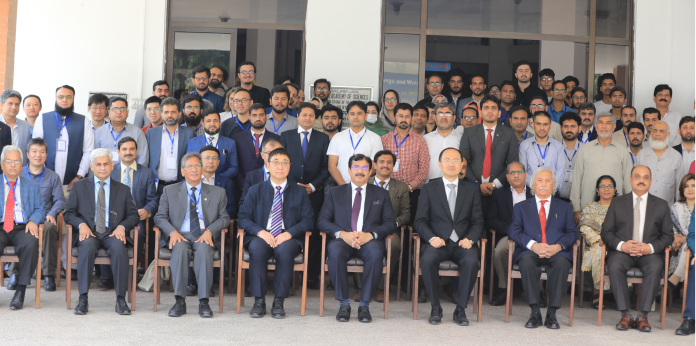International Workshop on Climate Change along CPEC begins in Islamabad underscoring the importance of bilateral cooperation on climate resilience.
The International Training Workshop focusing on Climate Change and Water Safety along the China-Pakistan Economic Corridor (CPEC) commenced at the Pakistan Academy of Sciences in Islamabad. The opening ceremony featured Dr. Zia Ul-Qayyum, Executive Director of Pakistan’s Higher Education Commission (HEC), and Mr. Xu Hangtian, Minister Counselor at the Chinese Embassy in Pakistan.
Jointly organized by the China-Pakistan Joint Research Center on Earth Sciences (CPJRC) and the Pakistan Academy of Sciences (PAS), with backing from the Alliance of National and International Science Organizations (ANSO), the event convenes leading regional experts, scholars, and decision-makers to explore critical issues related to climate change and water security across the CPEC route.
Distinguished guests from the Chinese Academy of Sciences (CAS) such as Dr. Kang Shichang, head of the Institute of Mountain Hazards and Environment, and Dr. Su Lijun, Director General of CPJRC at Quaid-i-Azam University, participated in the opening session. Eminent Pakistani scholars including Prof. Dr. Muhammad Aslam Baig and Prof. Dr. Mumtaz Shah, along with representatives from national institutions like the Pakistan Science Foundation and the Meteorological Department, also took part.
Running from April 10–14, 2025, the five-day workshop has attracted more than 120 local participants from various research and academic bodies, along with 20 international delegates from countries within the Hindu Kush Himalaya region, including China, Nepal, Sri Lanka, Bangladesh, and Afghanistan.
In their addresses, Dr. Zia Ul-Qayyum and Mr. Xu Hangtian emphasized the importance of China-Pakistan collaboration in advancing scientific, educational, and economic goals. They pointed out the growing threat of climate change, particularly its effects on glacial systems, water availability, disaster resilience, farming, and livelihoods—stressing the need for innovative joint solutions for sustainable water management.
Other speakers highlighted the increasing frequency and impact of water-related disasters and the necessity for cross-border cooperation in research and policy. They reiterated that the close partnership between China and Pakistan is vital for promoting climate resilience and sustainable development in the CPEC region.
The workshop aims to encourage robust dialogue, the exchange of knowledge, and collaborative research efforts, ultimately informing evidence-based policy and practical solutions for climate adaptation and water resource management in the region.
Related Posts
UNDP Pakistan and China collaborate on climate resilience project

















